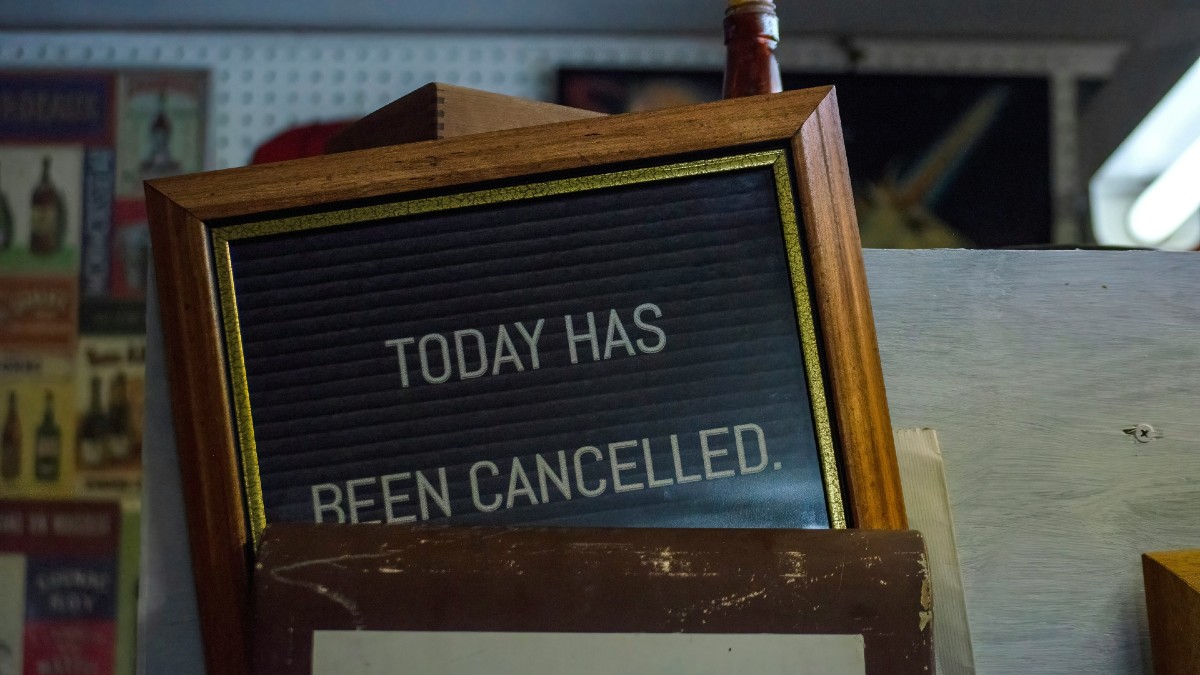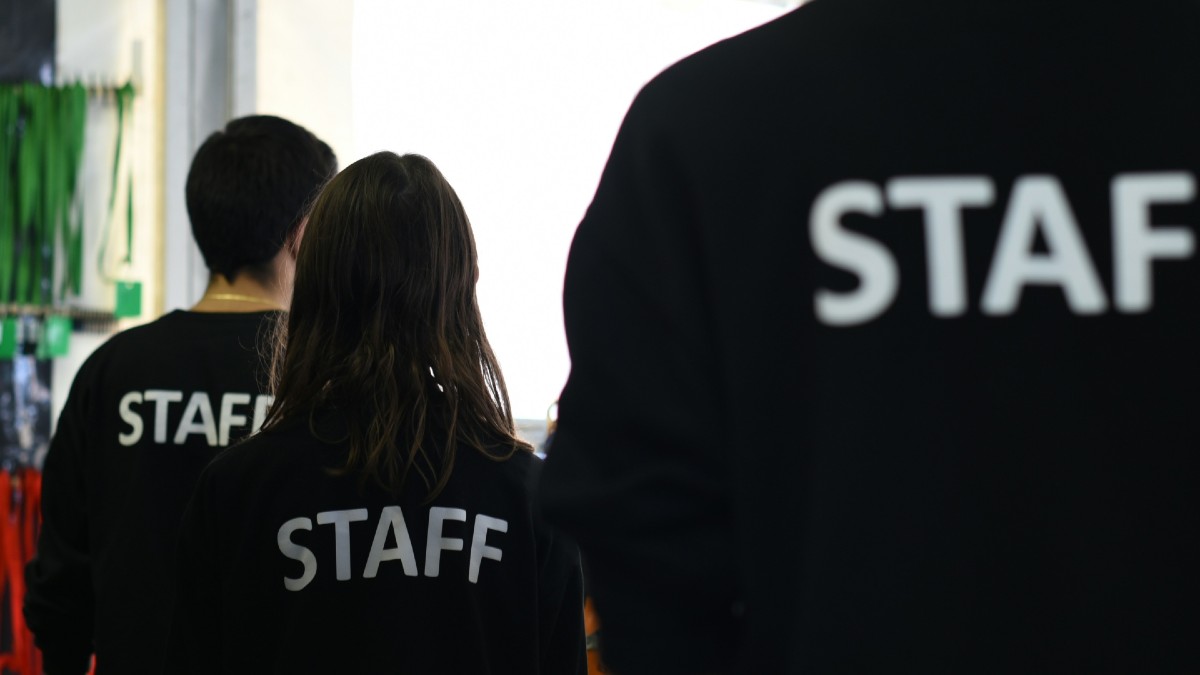
Written by: Cara Tirona
September 4, 2024
One of the biggest challenges in multi-day conference planning is keeping attendees engaged and interested throughout the entire event. With so many sessions, workshops, and networking opportunities to choose from, it can be easy for participants to become overwhelmed or lose interest. To combat this, this blog post will outline some effective strategies for creating a successful and engaging multi-day conference.
Pre-Conference Planning
The key to a successful multi-day conference is thorough pre-conference planning. This includes setting clear goals and objectives for the event, identifying the target audience, and determining a budget. It's important to involve all stakeholders in this planning process to ensure that everyone is on the same page and working towards the same goals.
Additionally, it's crucial to start promoting the conference early on to generate buzz and interest. This can include creating a website or landing page for the event, using social media to share updates and teasers, and reaching out to potential sponsors or speakers. The more excitement that is generated before the event even begins, the more likely attendees will be engaged and interested in attending.
Crafting a Compelling Conference Agenda
The conference agenda is the backbone of any multi-day event. It's important to carefully curate a diverse and engaging schedule that will appeal to a wide range of attendees. This can include a mix of keynote speakers, workshops, panel discussions, networking events, and social activities.
The Art of Conference Agenda Development
When developing the conference agenda, it's important to keep the target audience and event goals in mind. The sessions and activities should be relevant and valuable to attendees, as well as aligned with the overall theme of the conference. It can also be beneficial to include a variety of session formats such as interactive workshops, roundtable discussions, and hands-on demonstrations.
Another important aspect of agenda development is to schedule breaks and downtime for attendees. This will give them time to recharge, network, and reflect on the information they have learned. It's also crucial to allow for flexibility in the schedule to account for any unexpected changes or delays. This will ensure that attendees have a positive and stress-free experience.
Considering Diverse Session Topics and Formats
To keep attendees engaged throughout the conference, it's important to offer a diverse range of session topics and formats. This means including a mix of panels, workshops, keynote speeches, and networking opportunities. It's also important to consider the different learning styles and preferences of attendees and offer sessions that cater to them.
In addition to diverse topics and formats, it's also important to have a variety of speakers and presenters. This can include industry experts, thought leaders, and even attendees who can share their experiences and expertise. This not only adds variety to the conference but also allows for different perspectives and insights.

Effective Speaker Recruitment and Management
Securing engaging and knowledgeable speakers is crucial to the success of any conference. It's important to start this process early on and have a clear understanding of the target audience and event goals, as well as the budget for speaker fees.
When reaching out to potential speakers, be sure to clearly communicate expectations, session topics, and any technical requirements. It's also important to provide support and resources to speakers leading up to the conference. This can include coaching or training sessions, assistance with presentation materials, and ensuring they have everything they need on the day of their session.
Conference Venue Selection
Choosing the right venue is critical for the success of a multi-day conference. It's essential to select a location that is not only accessible for attendees but also has the necessary facilities and technical capabilities to support the event. Consider venues that offer a variety of spaces, such as large auditoriums for keynote sessions, smaller rooms for workshops and breakout sessions, and areas for networking and relaxation.
When evaluating potential venues, it's important to visit them in person to assess their suitability. Pay particular attention to the layout and flow of the spaces, ensuring there is enough room for attendees to move comfortably between sessions. Additionally, check the technical setup, including audio-visual equipment and internet connectivity, to confirm it meets the event's requirements. Food and beverage options should also be considered, especially for multi-day events, to ensure attendees are well-nourished and energized throughout the conference. If your conference is out of town, check for accommodation options nearby or consider partnering with a hotel to provide discounted rates for attendees. This will make it easier for attendees to find accommodations.
Streamlining Conference Logistics
In terms of event logistics, detailed planning is key. This involves coordinating with vendors, managing registration and check-in processes, and ensuring all attendees' needs are met. Effective communication is crucial throughout this process.
To ensure a seamless and stress-free conference experience, it's important to have a dedicated team or individual responsible for managing event logistics. This can include tasks such as coordinating with vendors, creating and distributing schedules, and setting up registration processes. It's also important to have a contingency plan in place for any potential hiccups or challenges that may arise. This can include having backup venues or vendors, having clear communication channels for attendees and staff, and regularly checking in on logistical details leading up to the event.

Leveraging Technology for Seamless Event Management
In today's digital age, technology can be a valuable asset for managing multi-day conferences. This can include using event management software for registration and ticketing, creating an event app for attendees to access the schedule and session materials, or setting up virtual attendance options for those unable to travel.
Additionally, technology can also be used to gather feedback from attendees in real-time through surveys or polls. This can help gauge the success of the event and make any necessary adjustments for future conferences.
Encouraging Attendee Engagement and Networking
One of the main goals of a multi-day conference is to facilitate connections and networking opportunities among attendees. It's important to create an environment that encourages interaction and engagement between participants.
This can include setting up designated networking sessions, creating interactive activities or challenges, and providing opportunities for attendees to share their thoughts and experiences with each other. Additionally, incorporating social media into the event can also help foster connections and engagement. Encouraging attendees to use event hashtags and tagging speakers or presenters in posts can help generate buzz and facilitate conversation.
Conclusion
Planning and executing a successful multi-day conference requires careful consideration of various factors, from session topics and formats to venue selection and event logistics. By taking the time to plan, effectively manage speakers and vendors, leverage technology, and encourage attendee engagement and networking, you can ensure a memorable and impactful experience for all attendees. Remember to also gather feedback after the event to continuously improve future conferences and keep attendees coming back year after year. So, the planning and execution of a successful multi-day conference is an ongoing process that requires dedication, flexibility and attention to detail. By implementing these strategies, you can create a dynamic and engaging event that leaves a lasting impact on all participants. Keep learning, evolving and adapting to ensure your multi-day conference continues to be a valuable and sought-after event in your industry. Keep striving for excellence, and you will create a conference that attendees will look forward to attending year after year. Happy planning!
Ready to elevate your next multi-day conference? Discover how VenueNow can streamline your event planning process and help you find the perfect venue for your next conference. Contact us today to learn more!
Looking for an event venue to hire?
VenueNow has you covered with over 2,000 venues across Australia ranging from large event spaces to small meeting rooms. Find your perfect venue for hire faster than anywhere else.
Follow us on social media to stay up to date with the latest news
Customers
Want to get in contact?
Call our support team on 1300 647 488 during business hours AEST.
Follow Us
© Copyright VenueNow 2026 | SPARE GROUP PTY LTD | ABN 22 607 830 302











